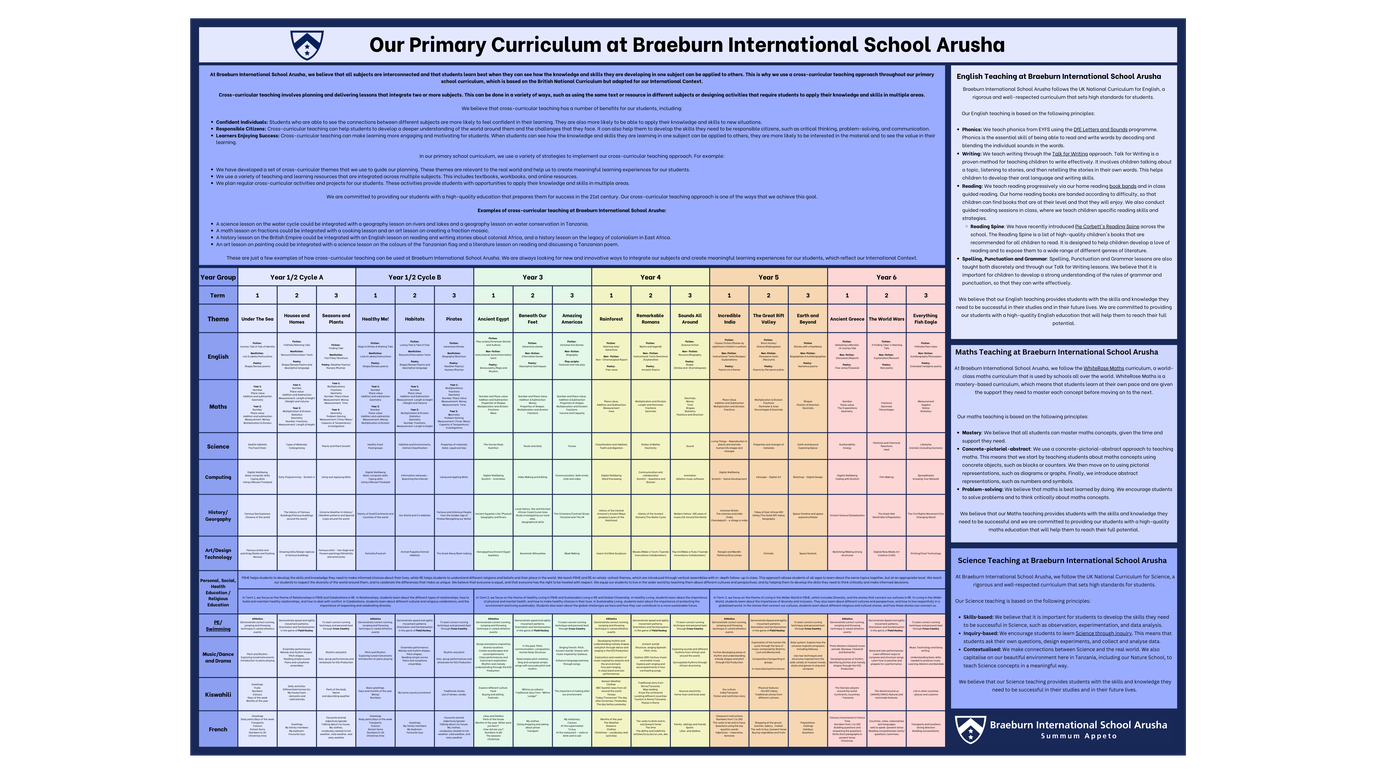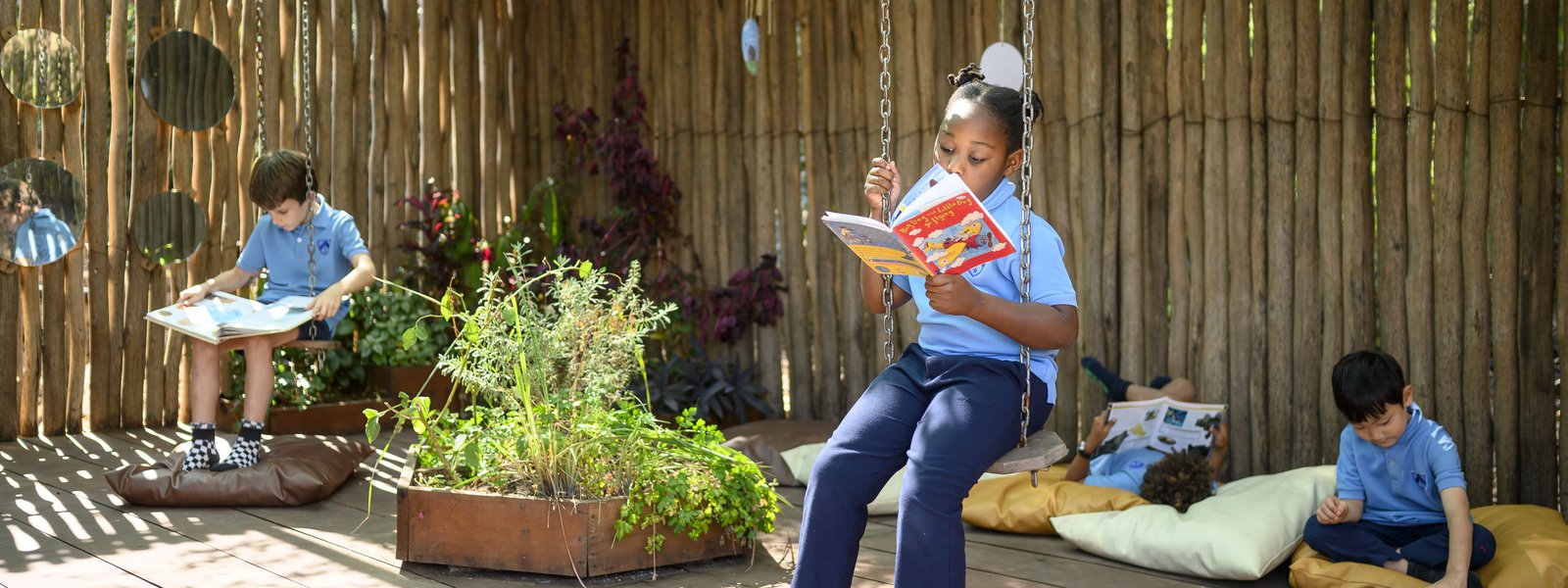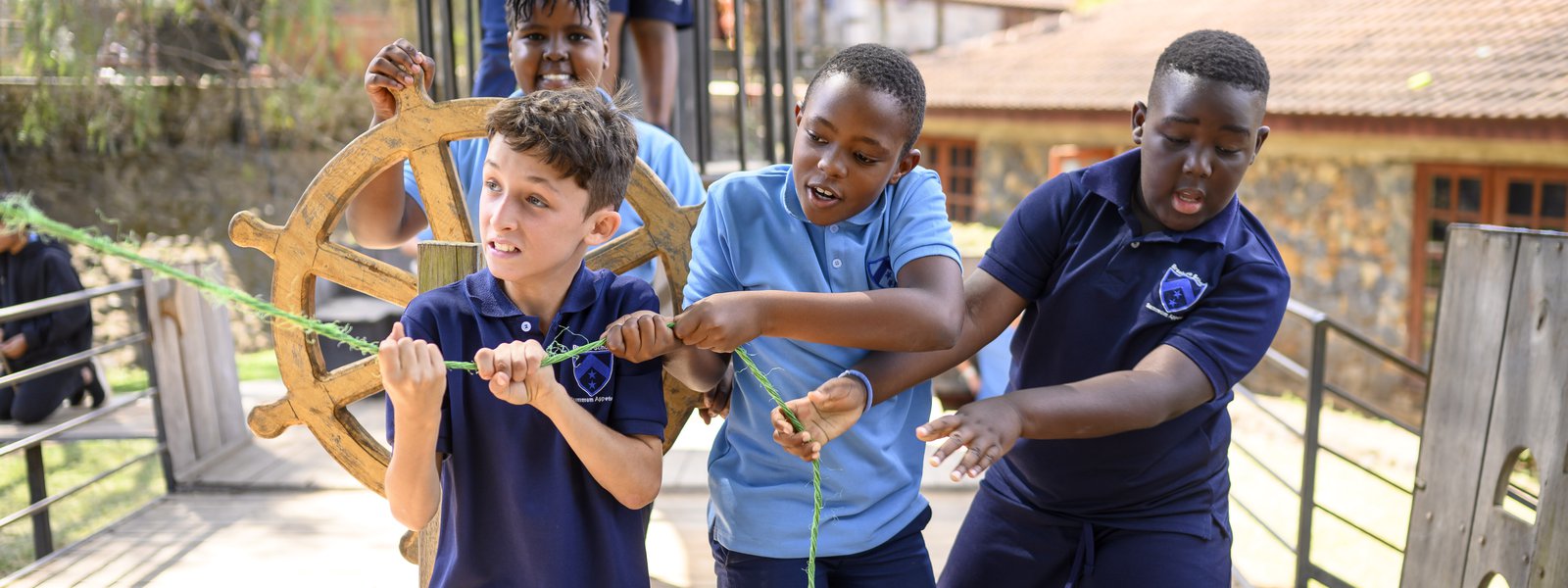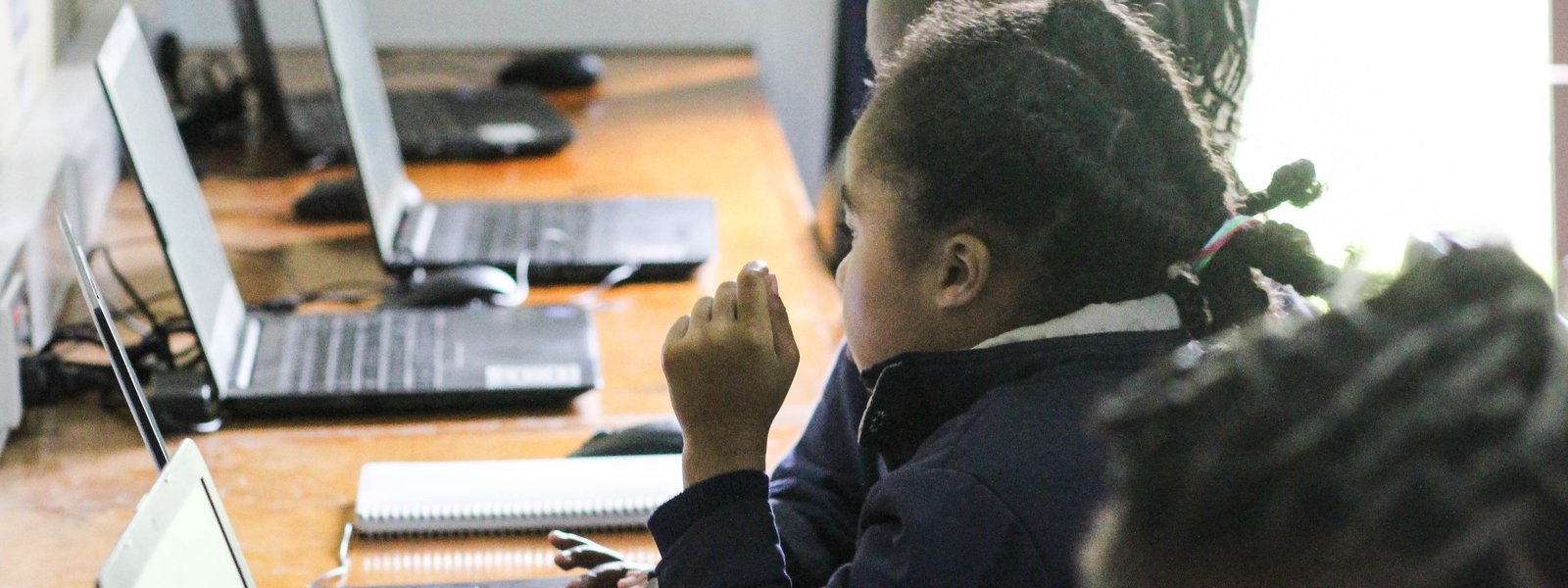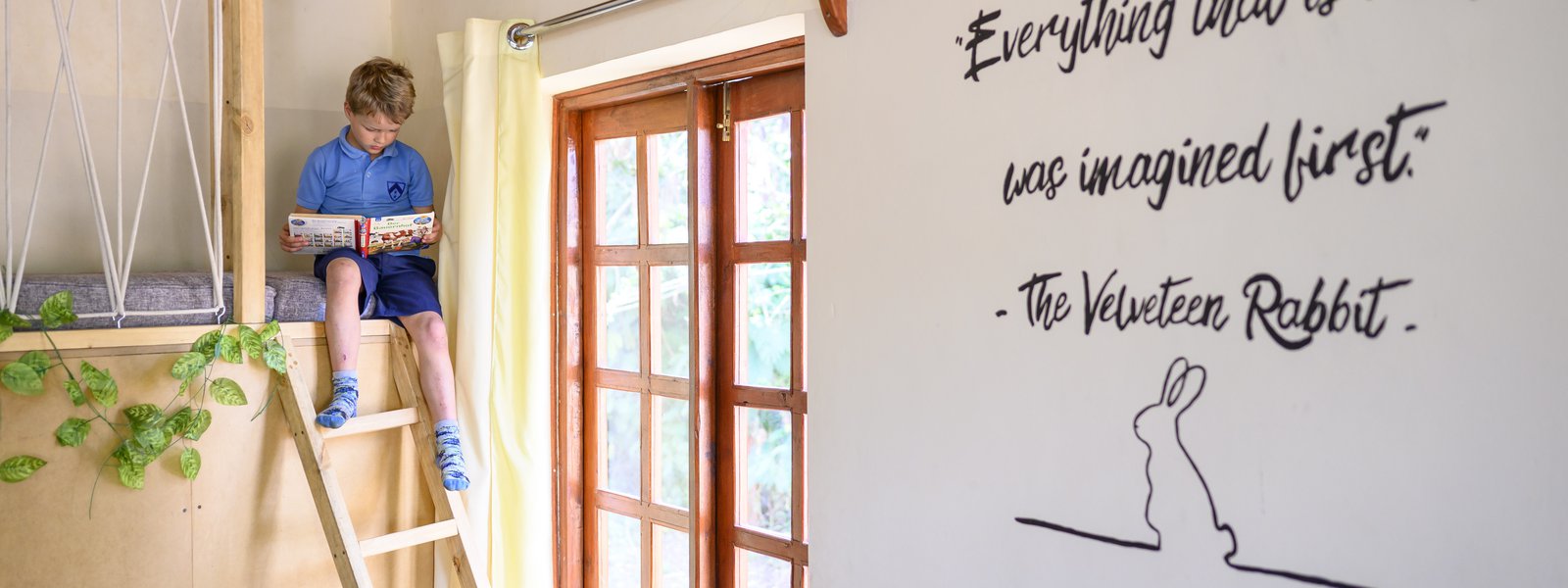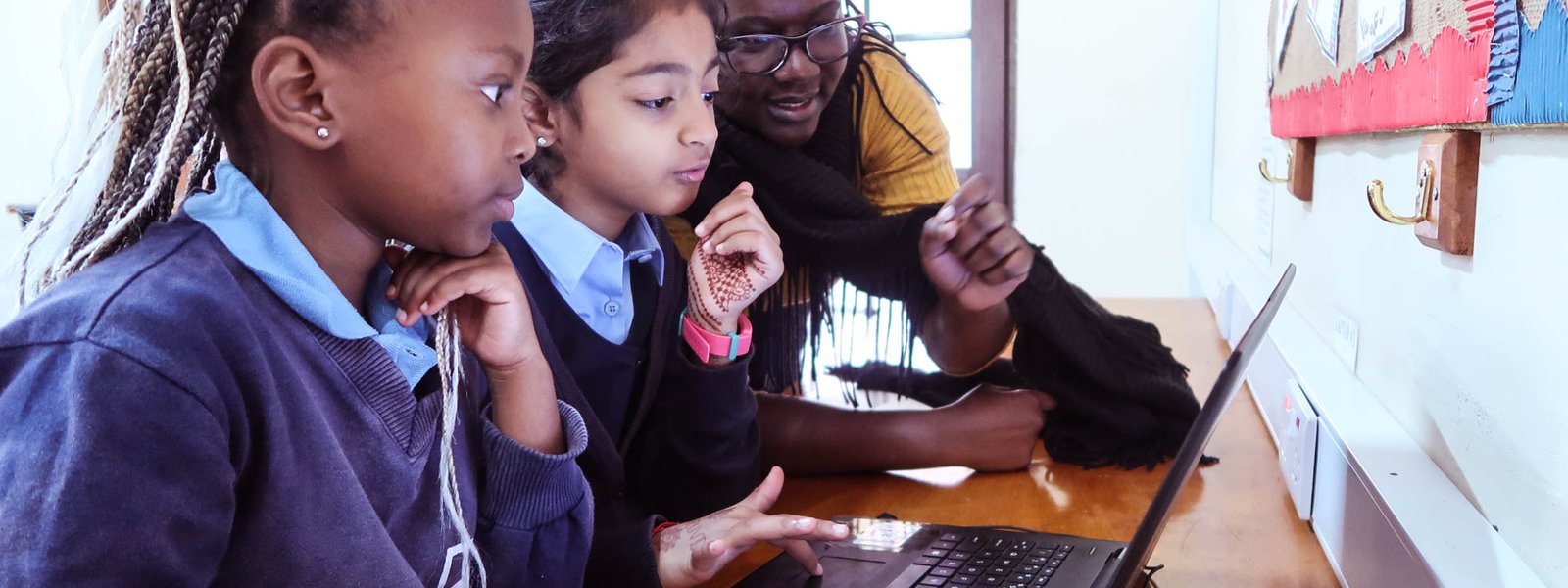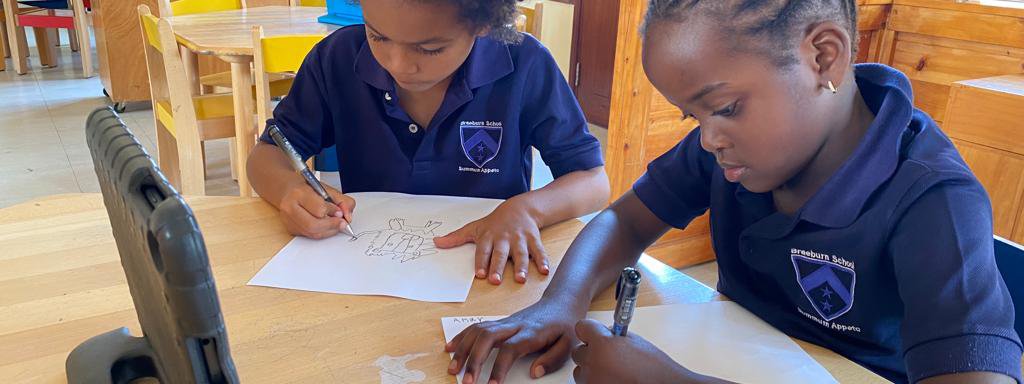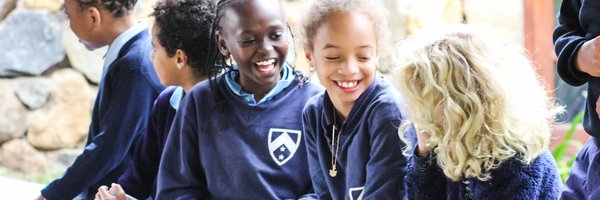
Primary
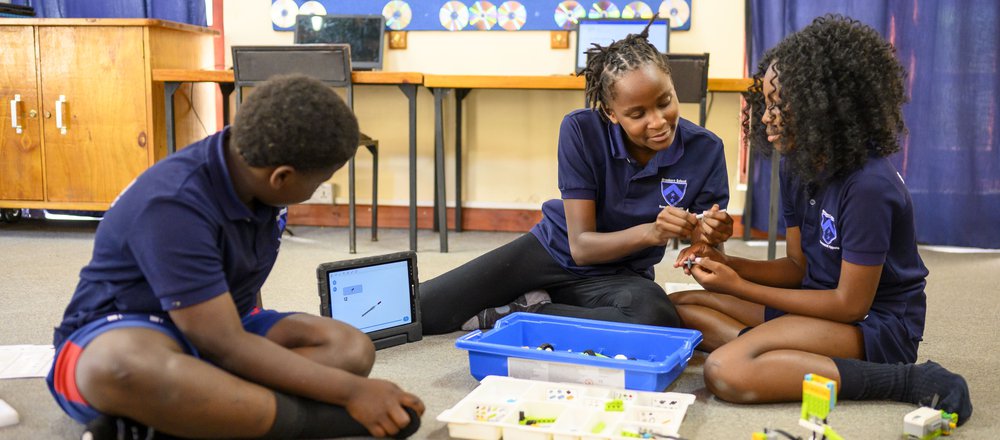
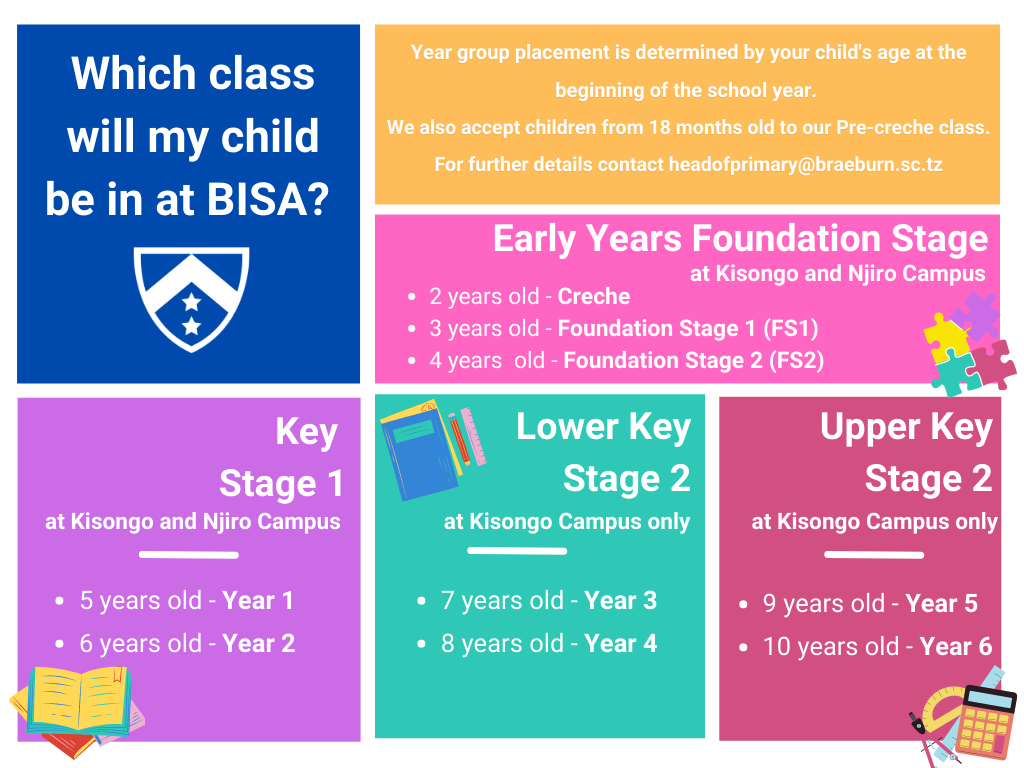
Regardless of the time of day, as you take a walk around our Primary School, you will experience children of all ages and abilities engaged in meaningful learning. Stretching far beyond the curriculum and with the support of those around them; they are learning to work together, learning to communicate, learning to question and challenge, learning to unpick problems – in short, they are learning to be the adults of tomorrow.
Through working together and valuing the individual, we are an incredibly strong family. From a very early age we care for, support and encourage each other. Reflecting honestly on and growing through difficulties, no matter how big or small, allows us to take the next step forward. A dynamic and stimulating environment shows us that there is not just one answer out there.
We take pride in the knowledge that through this positive and motivating climate, our students are becoming more confident, more responsible and more successful with every passing day.
Curriculum
The Primary curriculum at BISA is based on the National Curriculum, produced by the Department of Education (England) and is divided into 2 distinct Key Stages – Key Stage 1 and Key Stage 2.
Key Stage 1 classes are available at both our BISA Kisongo campus and Braeburn Infant School in Njiro.
To better reflect and meet the needs of our international community and our East African location, elements are adapted to make the content more relevant, whilst maintaining the integrity of the objectives.
From Year 1, students study within a framework that encompasses English, mathematics, science, computing, geography, history, art and design, design technology, PSHE and citizenship. These subjects are delivered by the class teacher usually under a cross-curricular heading, with specialist subject teachers delivering sessions in French, Swahili, music, P.E and swimming. The weekly timetable also incorporates assemblies, library sessions, buddy reading, phonics (for Key Stage 1) and Music Keys sessions for Years 4, 5 and 6.
Primary English at BISA
At Braeburn International School Arusha, we believe that all students can achieve success in English. We follow the UK National Curriculum and use a variety of proven teaching methods, including phonics, Talk for Writing, and guided reading. We have also recently introduced Pie Corbett's Reading Spine across the school.
In addition to these core teaching methods, we also teach Spelling, Punctuation and Grammar lessons both discretely and through our Talk for Writing lessons. We believe that it is important for children to develop a strong understanding of the rules of grammar and punctuation, so that they can write effectively.
Primary Maths at BISA
At Braeburn International School Arusha, we believe that all students can achieve success in maths. We follow the WhiteRose Maths curriculum, which is a world-class maths curriculum that is used by schools all over the world.
Our maths teaching is based on the principles of mastery, concrete-pictorial-abstract, and problem-solving. We believe that all students can master maths concepts, given the time and support they need. We also believe that maths is best learned by doing, so we encourage students to solve problems and to think critically about maths concepts.
Primary Science at BISA
At Braeburn International School Arusha, we believe that all students can achieve success in Science. We follow the UK National Curriculum for Science and use a skills-based approach to teaching. We encourage students to learn Science through inquiry and to make connections between Science and the real world. We also capitalise on our beautiful environment here in Tanzania, including our Nature School, to teach Science concepts in a meaningful way. We believe that our Nature School is a valuable asset for teaching Science. It provides students with the opportunity to learn about Science in a real-world context and to develop a deeper appreciation for the natural world.
Additionally, we believe that it is important for students to have fun while learning Science. We create a positive and engaging learning environment where students feel comfortable asking questions and making mistakes. We also provide students with opportunities to apply what they have learned through hands-on activities and experiments.
Cross-Curricular Teaching Approach
At Braeburn International School Arusha, we use a cross-curricular teaching approach that is based on the British National Curriculum but adapted for our international context. This means that we integrate two or more subjects in our planning and delivery of lessons, while also ensuring that our students are learning the knowledge and skills that they need to be successful in the global community.
We believe that cross-curricular teaching has a number of benefits for our students, including:
- Confident Individuals: Students who are able to see the connections between different subjects are more likely to feel confident in their learning. They are also more likely to be able to apply their knowledge and skills to new situations.
- Responsible Citizens: Cross-curricular teaching can help students to develop a deeper understanding of the world around them and the challenges that it faces. It can also help them to develop the skills they need to be responsible citizens, such as critical thinking, problem solving, and communication.
- Learners Enjoying Success: Cross-curricular teaching can make learning more engaging and motivating for students. When students can see how the knowledge and skills they are learning in one subject can be applied to others, they are more likely to be interested in the material and to see the value in their learning.
We adapt the British National Curriculum for our international context in a number of ways. For example, we include additional content on topics such as global citizenship, cultural diversity, and sustainable development. We also make sure that our curriculum is relevant to the lives of our students, who come from a variety of backgrounds and cultures.
Here are some examples of how we implement cross-curricular teaching at Braeburn International School Arusha:
- In a science lesson on the water cycle, students might learn about the different ways that water is used in different cultures around the world. They might also learn about the challenges of water scarcity and how to conserve water.
- In a math lesson on fractions, students might learn how to cook a traditional dish from another country that uses fractions in the recipe. They might also learn about the cultural significance of the dish.
- In a history lesson on the Second World War, students might read and discuss a novel about the war from a different perspective. They might also learn about the impact of the war on different countries around the world.
- In an art lesson on painting, students might learn about the use of colour in different cultures. They might also create a painting that reflects their own cultural identity.
These are just a few examples of how we use cross-curricular teaching to provide our students with a high-quality education that prepares them for success in the 21st century.
To learn more about how we assess children in Primary, look here: Deep Dive: Assessment in Primary
Learn more about our innovative Talk for Writing approach in Literacy here: Deep Dive: Talk for Writing - Part 2
